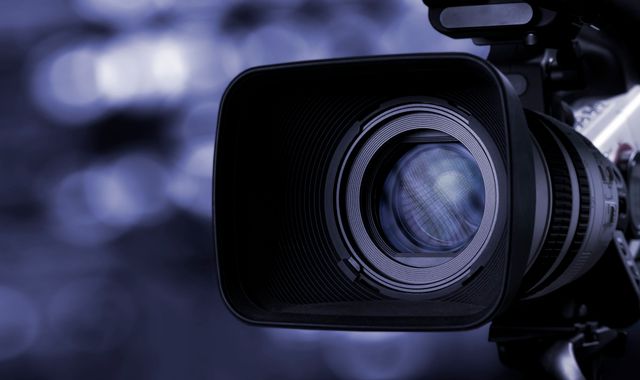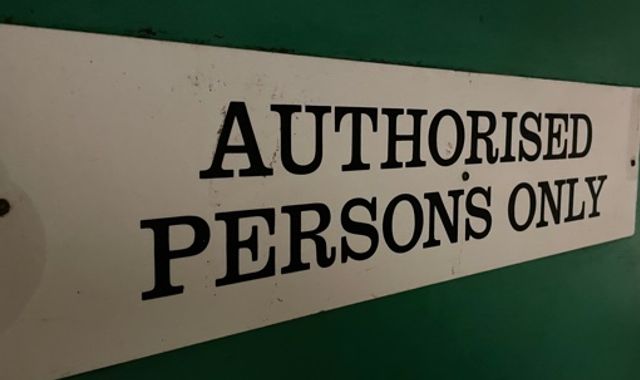TV cameras to be allowed to film high profile cases in Crown Courts within months
Written by News on 16/01/2020
Crown courts in England and Wales will make history within the next few months, as television cameras are allowed in for the first time to cover part of the trial process.


Draft legislation is being laid before parliament on Thursday, paving the way for cameras to cover some of the most high profile criminal cases.
It is the culmination of more than a decade of campaigning by Sky News and the other main news broadcasters, to persuade the government and the judiciary to allow cameras in court.
Filming has been permitted in some Court of Appeal cases since 2013.
The Supreme Court, the highest court in the UK, also now provides live feeds of many cases, including the recent judgement that the government’s move to suspend parliament was illegal.
The Crown Court (Recording and Broadcasting) Order 2020 will permit High Court and Senior Circuit judges to be filmed as they pass sentence after a successful conviction.
Justice Secretary and Lord Chancellor Robert Buckland said: “It will ensure our courts remain open and transparent and allow people to see justice being delivered to the most serious of offenders.”
A three-month pilot has already been carried out where sentencing remarks were recorded in eight crown courts, but not broadcast.
The change in the legislation will allow individual news broadcasters in television and radio to apply to record or broadcast live the sentencing remarks of senior judges presiding over the most serious cases.
The Lord Chief Justice, Lord Burnett, Head of the Judiciary in England and Wales, has been instrumental in backing the change.
He said: “I have pressed for this change since I took office two years ago.
“The courts are reported by journalists already, but this gives an extra dimension to allow people to see the sentences judges pass on convicted criminals and to understand why they interpret the law and guidelines the way they do in each case.”
In many other countries, broadcasting rules are more relaxed and full court cases are often aired live.
In 1995, huge audiences around the World tuned in to watch daily coverage of the OJ Simpson trial in the US, as the former sportsman turned actor stood accused of murdering his wife Nicole Brown Simpson and her friend Ron Goldman.
That case, and other high profile televised trials, including that of the British nanny Louise Woodward two years later, convinced many in the legal profession in the UK that allowing cameras into court could undermine the legal process.
It meant UK broadcasters faced a long battle in persuading the government and judiciary to allow cameras anywhere near courtrooms.
Sky’s Head of News, John Ryley said: “The filming of judges’ sentencing remarks in the Crown Court is a great day for transparency in our courts.
“This is a further step in helping the public to understand the constraints under which judges work and the complexities of many of the biggest criminal cases.
“This has been a long campaign by the three main broadcasters working together.”
John Battle, Head of Compliance at ITN, said: “This is a landmark moment and an important day for open justice and transparency of our legal system.
“For the first time the public will see images of proceedings in the Crown Court on television news.”
This change will help a wider audience to see and understand the criminal justice process for themselves.
But there are still many throughout the legal profession who have concerns about the potential negative impact of cameras in court.
Barristers have warned against making court proceedings “a spectator sport”.
Amanda Pinto QC, chairwoman of the Bar Council, said: “This initiative will help people understand the realities of our criminal justice system.
“However, given that it is only the judge’s sentencing remarks that will be televised, the public may well not fully appreciate why a particular sentence has been given without seeing the evidence presented during trial, the mitigating factors and other relevant information, such as probation reports.
“This is especially the case in a trial where the judge will have seen and heard the victim, the defendant and other witnesses, but the judge’s evaluation of them may not be clear from the televised hearing.
“We must guard against unwarranted attacks on judges where the sentence isn’t popular with the public.”
The Criminal Bar Association warned that filming should remain restricted to sentencing remarks only, for fear that vulnerable or reluctant witnesses could be put off from testifying if they thought their evidence was going to be televised.
The government said that the introduction of cameras in certain high profile criminal trials was “an important first step” and it was possible that cameras might be permitted to film other aspects of the trial process.
But ministers have warned any move beyond the filming of judges’ sentencing remarks were still a long way off.
(c) Sky News 2020: TV cameras to be allowed to film high profile cases in Crown Courts within months







